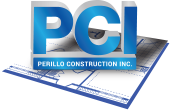The only way to stick to your project budget and timeline is through the use of intelligent cost control systems and progress estimates. At the start of any project you are given an estimate, but in reality this is just a roundabout figure that will likely change by the end of the project. There are so many unpredictable factors that may arise during an interior build out, such as delivery delays, weather conditions, labor shortages, an increase in material costs, accidents and so forth. It’s not just the original bid that may be off, but the original itinerary may not follow its intended course either. While this sounds like a potential pain, it must be taken into consideration to prevent project budgets and schedules from spiraling out of control.
The best way to keep your project as close to original estimates as possible is to rely on an intelligent cost-control system as well as progress estimates. This sort of system gives a project manager the unique ability to truly oversee and analyze worker productivity, equipment performance, and the exact area every last penny is funding. Bar charts or CPM planning systems are ideal tools for making this level of project management possible.
Bookkeeping Vs. Progress Estimating
Any project involves traditional bookkeeping, which includes input of accounts payable, accounts receivable, payroll, additional financial accounts and taxes. Cost-control accounting and progress estimating takes things a few steps further.
While bookkeeping is simply tallying up numbers, progress estimating requires input and cooperation from all team members. The owner, architect, subcontractors, contractor, purchasing personnel and suppliers are all important factors in the end result of a project regarding costs and timelines. Progress estimating must take into account everything going on regarding these important project participants.
There are a few key requirements for effective progress estimating to take place, such as:
- A responsible and experienced superintendent designated in charge of collecting and analyzing all data from the start of the project till the end.
- Regular weekly or biweekly meetings for all job team members to bring up any issues and identify the right solutions.
- Regular creation of progress reports that analyze the speed and efficiency of work as it progresses. This is useful to compare to original time estimates to ensure you are on track, or identify ways to get back on track.
- Regular collection and analysis of project expenses in order to check and compare with original estimates.
- All daily or weekly progress reports created by the designated superintendent or other appointee must be properly filed for future reference.
Job Meetings And Progress Reports
A schedule of regular job meetings should be appointed at the very beginning of a project so that everyone is in the know and able to attend. It’s so important that a representative from every aspect of the project is in attendance to discuss any setbacks or current challenges. All it takes is one small problem to hold up the entire project.
One representative from the following categories should be present at all job meetings:
- The general contractor
- The owner
- All subcontractors
- The architect
- Supplier of materials
- Equipment operators and renters
Attendance at these meetings should be mandatory. It’s important that everyone is given fair notification of this ahead of time. Before the job even gets off the ground the schedule of meetings should be presented and discussed. The general contractor should be in charge of creating the meeting schedule and presenting it to all individuals whose presence is required.
What Is Usually Covered At A Typical Meeting?
A typical meeting will cover a range of topics, often dependent upon the exact specifications of a job. The most important topics discussed generally include:
- Day-to-day happenings out in the work field.
- How many workers are assigned to each specific job area, as well as where they are working, how much work they are producing, and if any overtime is expected.
- Any delays must be addressed and explained.
- Materials and equipment deliveries, when are they scheduled, are they on time, etc.
- Any shortages in materials or unexpected issues with the ordering of materials.
- Progress estimates
A project can easily get out of hand when regular progress estimates are not conducted. As a result you can get too far along to do anything about it. This may cause you to shortcut important fundamentals to make a suddenly unaffordable project more affordable. No matter what, an out of control project is going to cause you financial stress. You want to identify project budget or efficiency concerns as soon as possible in order to generate solutions that work without interfering with the original itinerary, budget or quality of work.
Who is in charge of your cost-control system, progress estimates and regular team meetings? The best way to keep your projects in line and on budget is to hire an experienced general contractor for the job. Perillo Construction is king at keeping building projects in line using our experienced cost-control systems, superior management skills and unmatched connections. Contact us today to learn more!

